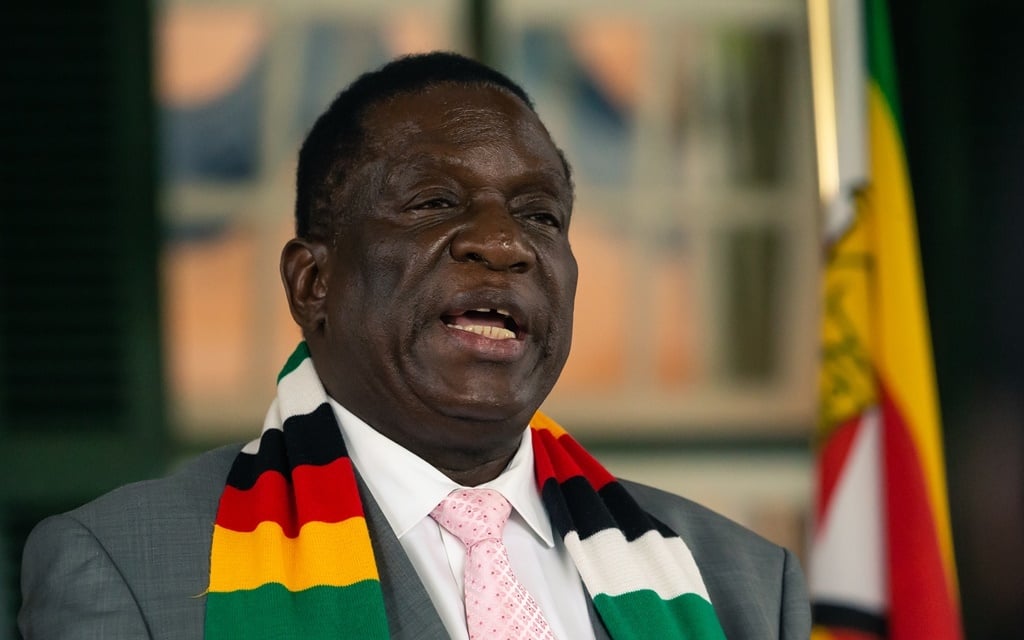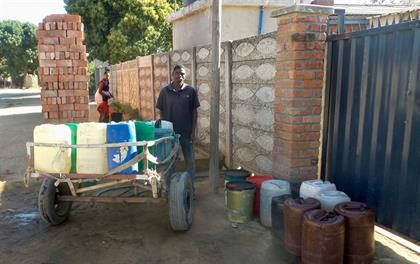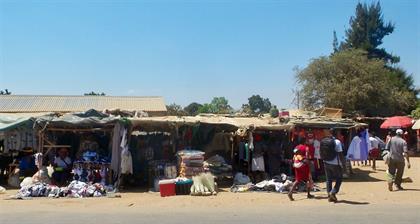
US-Zimbabwe relations and targeted sanctions

Zimbabwean President Emmerson Mnangagwa
Photo: Jekesai Najikizana, AFP
- Eighty-three individuals and 37 entities have been nominated under the Zimbabwe Sanctions Program.
- It has long been argued by the ruling party that sanctions negatively affect trade and investment.
- But the opposition says the ruling party is using the sanctions on the pretext of political failures.
African leaders have called for the lifting of sanctions imposed on Zimbabwe by a law passed by the United States Congress in 2001 during the regime of the late Zimbabwean President Robert Mugabe.
Recently at the United Nations General Assembly (UNGA77) in New York, South African President Cyril Ramaphosa and African Union President Mackie Sal, who is also the President of Senegal, spoke about the need to lift sanctions imposed by Zimbabwean democracy and economic reform. I talked. Act of 2001 (Zadera).
Over the past three years, the Southern African Development Community (SADC) has marked October 25 as Zimbabwe Anti-Sanction Day, hosting solidarity marches in cities across the region.
However, sanctions in Zimbabwe have divided opinion.
Members of the ruling party claim that the restrictive measures have a direct impact on ordinary citizens and dent the policy space for the government’s development plans.
But the opposition, which is accused of imposing sanctions on the country, feels that the ruling party is using the sanctions as an excuse for its political failures and political gains.
According to the US Embassy in Zimbabwe, the sanctions are “financial sanctions targeted against select members of Zimbabwe’s ruling elite to undermine democratic processes, abuse human rights or promote corruption”.
Thus, the US has, in the past, made it clear that it supports Zimbabwe’s push for the restoration of democracy, respect for human rights and better governance as defined in the country’s 2013 constitution.
The US Embassy argues that “accepted members of the ruling elite continue to undermine Zimbabwe’s democratic processes and institutions, commit human rights abuses related to repression, and engage in corruption.
“For these reasons, successive administrations have renewed sanctions against those who continue to undermine Zimbabwe’s democracy.”
It has long been argued by the ruling party that sanctions negatively affect trade and investment.
However, the US says this is not true.
“US sanctions against the ruling elite do not block trade and investment with unapproved individuals and entities. Currently, 83 individuals and 37 entities have been designated under the Zimbabwe Sanctions Program,” Molly Fee, assistant secretary of the US State Department for African Affairs, argued in an op-ed in March this year.
Data shows that trade between Zimbabwe and the US exceeds R1.4 billion and as of last year, there was a US commerce-supported trade mission to Zimbabwe.
In comparison, it exceeds Zimbabwe’s export receipts to Botswana (R651 million) and exports to Zambia (R1.2 billion), according to data from the Observatory of Economic Complexity (OEC).
Since Zimbabwe’s independence in 1980, the US has been the largest donor country.
It is worth R59.5 billion, covering health, humanitarian and development assistance, such as agriculture and livelihoods sustainability.
For the COVID-19 pandemic, the US provided more than R816 million in aid.
The US argues that by lifting the sanctions, “the Mnangagwa government can show the world that its citizens live in a safe, prosperous, equitable country, regardless of their political views”.
“Let all Zimbabweans feel free to offer their full potential and work to build a stronger, more prosperous and more inclusive society.”
The News24 Africa Desk is supported by the Hans Seidel Foundation. The stories produced through Africa Desk and the opinions and statements contained herein do not reflect the views of the Hans Seidel Foundation.

